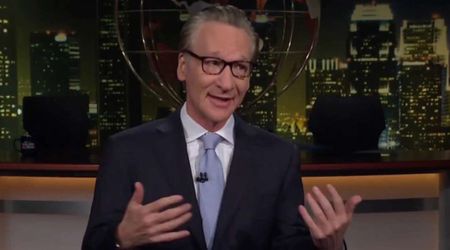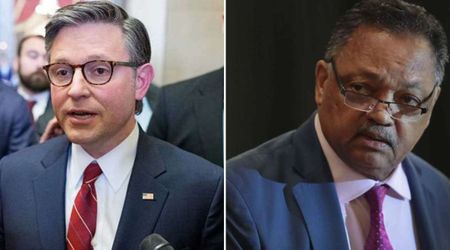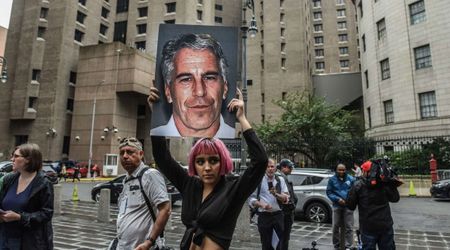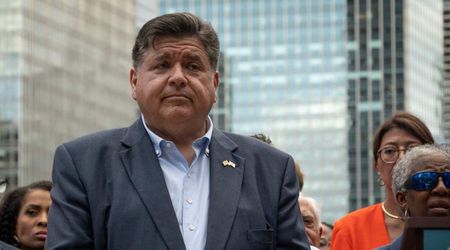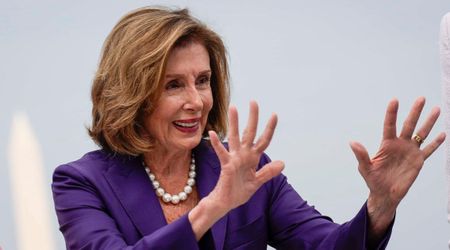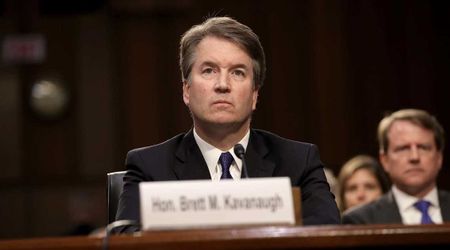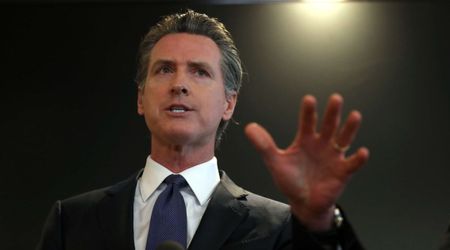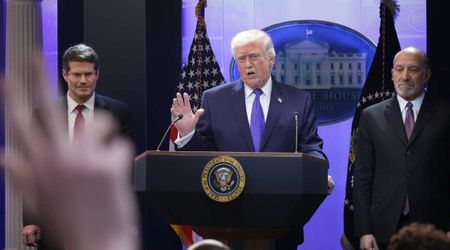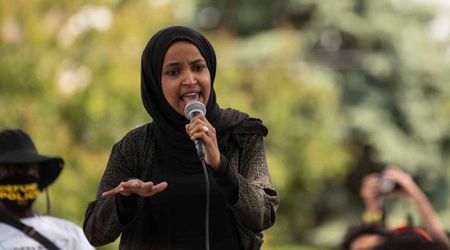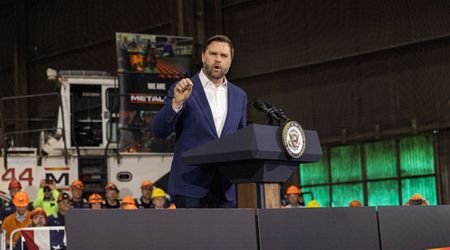US appeals court upholds partial gag order on Trump in 2020 election case
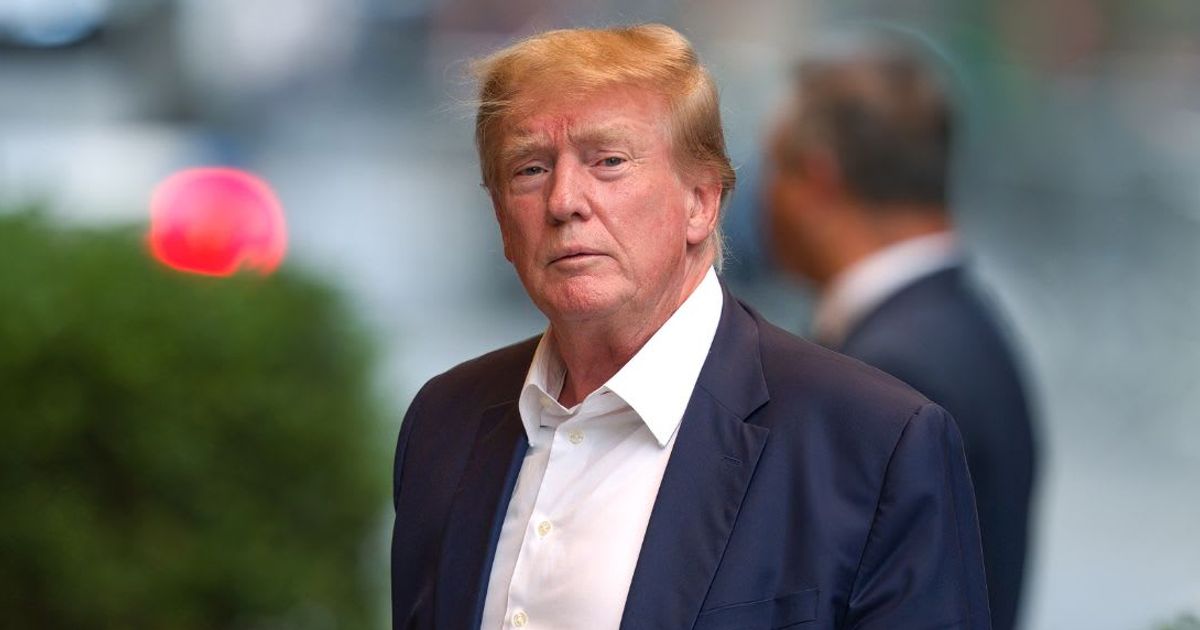
WASHINGTON, DC: On Friday, December 8, a US federal appeals court upheld a partial gag order that barred former President Donald Trump from targeting witnesses in his 2020 election interference case.
The Washington DC Circuit Court of Appeals' three-judge panel upheld Judge Tanya Chutkan's order prohibiting Trump from making statements about witnesses in the contentious case, which is due to go to trial on March 4, 2024.
"Trump's public statements pose a significant and imminent threat to the fair and orderly adjudication of the ongoing criminal proceeding," the three-judge panel said in a unanimous ruling.
The appeals judges modified the verdict by allowing Trump to continue his typical scathing assaults on special counsel Jack Smith, who is overseeing the prosecution, and whom the former POTUS often refers to on his beleaguered social media platform as a "deranged lunatic", a "thug," and worse.
What did the judges say?
The judges acknowledged the ruling's political sensitivity, saying that Trump is a presidential candidate and that "there is strong public interest in what he has to say."
However, they stated that no criminal defendant should be allowed to tip the balance of justice by interfering with witnesses.
"He must stand trial in a courtroom under the same procedures governing any other criminal defendant," the judges said and added, "That is what the rule of law means."
Judge Patricia Millet, Bradley Garcia, and Cornelia Millard served on the appeals court panel and it's worth noting that all three of them were appointed by Democratic presidents in the past.
Judge Chutkan's arguments in her order were mainly supported by the judges. However, the appellate panel directed her to rewrite it to allow Trump to reference or even criticize possible witnesses even if he does not directly allude to the case or their potential testimony, per Reuters.
“The interest in protecting witnesses from intimidation and harassment is doubtless compelling, but a broad prohibition on speech that is disconnected from an individual’s witness role is not necessary to protect that interest, at least on the current record,” Judge Millet noted for the panel.
The judges affirmed Trump's ban on making comments against court staff or their families, which would include attacks on Smith's wife.
They did, however, permit him to mock Smith as he saw fit, as well as other Department of Justice officials and members of President Biden's administration.
Judge Chutkan, who was appointed by former President Barack Obama, issued the order after Trump unleashed on potential witnesses such as ex-Vice President Mike Pence and former Chief of Staff Mark Meadows, both of whom have offered some cooperation to special counsel Jack Smith's team.
Prosecutors say the limits are required to maintain the case's integrity and to protect possible witnesses and anyone engaged in the case from harassment and threats prompted by Trump's inflammatory social media posts.
What did Trump say about the ruling?
Trump contested the order as an infringement on his First Amendment right to free expression, particularly as he campaigns for US President being the frontrunner amongst the pool of Republican nominees for 2024.
A Trump campaign official stated in response to the judgment, "President Trump will continue to fight for the First Amendment rights of tens of millions of Americans to hear from the leading presidential candidate at the height of his campaign."
Trump announced on his Truth Social website that he would appeal the Circuit Court of Appeals’ decision on Friday, which would then prompt for the case to be heard by the United States Supreme Court.
“What is becoming of our First Amendment, what is becoming of our Country?” Trump asked in a post on his social media site, Truth Social.
The former President of the United States is facing charges of attempting to overturn the results of the 2020 presidential election and retain his position in power.
Prosecutors allege that this effort culminated in the events leading up to the riot by his supporters on January 6, 2021.
In addition to these charges, Trump is also facing a trial on RICO conspiracy counts in the state of Georgia, along with more than a dozen co-defendants, for some of the same conduct.
Trump has sought to delay the case and other criminal trials because he enjoyed blanket immunity as President.
However, a ruling by Judge Chutkan went against him on this issue.
Trump has since appealed this ruling to the same DC appeals court, and the matter is likely to be decided by the Supreme Court.
It is suspected that Trump is hoping to use this legal tactic to delay the case and other criminal trials until after the 2024 election, at which point he hopes to regain power and avoid prosecution.

